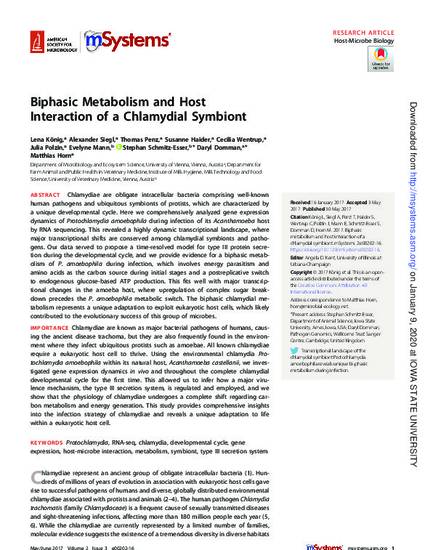
Chlamydiae are obligate intracellular bacteria comprising well-known human pathogens and ubiquitous symbionts of protists, which are characterized by a unique developmental cycle. Here we comprehensively analyzed gene expression dynamics of Protochlamydia amoebophila during infection of its Acanthamoeba host by RNA sequencing. This revealed a highly dynamic transcriptional landscape, where major transcriptional shifts are conserved among chlamydial symbionts and pathogens. Our data served to propose a time-resolved model for type III protein secretion during the developmental cycle, and we provide evidence for a biphasic metabolism of P. amoebophila during infection, which involves energy parasitism and amino acids as the carbon source during initial stages and a postreplicative switch to endogenous glucose-based ATP production. This fits well with major transcriptional changes in the amoeba host, where upregulation of complex sugar breakdown precedes the P. amoebophila metabolic switch. The biphasic chlamydial metabolism represents a unique adaptation to exploit eukaryotic host cells, which likely contributed to the evolutionary success of this group of microbes.
Available at: http://works.bepress.com/stephan-schmitz-esser/33/

This article is published as König L, Siegl A, Penz T, Haider S, Wentrup C, Polzin J, Mann E, Schmitz-Esser S, Domman D, Horn M. 2017. Biphasic metabolism and host interaction of a chlamydial symbiont. mSystems 2:e00202-16. doi: 10.1128/mSystems.00202-16.